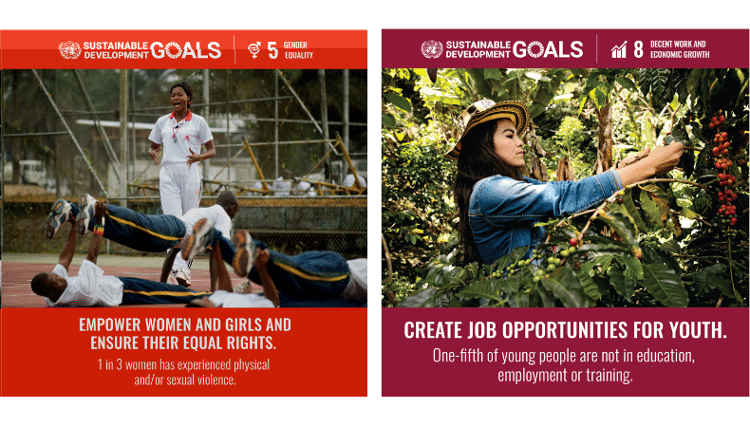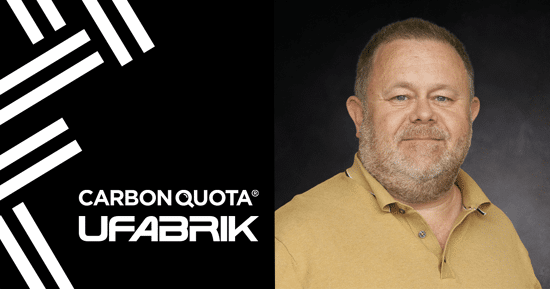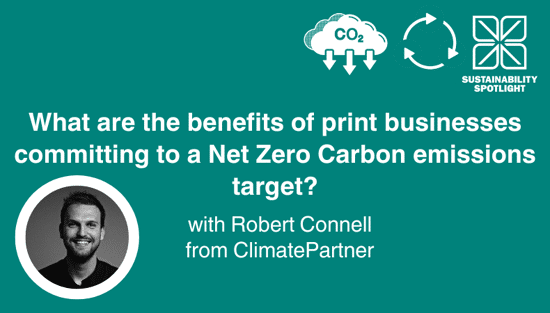The importance of gendery equality and creating job opportunities for businesses

Clare Taylor discusses the significance of social responsibility for businesses. Workplace social sustainability is derived from various categories including human rights, modern slavery, discrimination and more.
In the last article I touched briefly on the social pillar of sustainability; this article goes a bit further into social sustainability with a focus on people, including the related United Nations Sustainable Development Goals that touch our business sector.
Treating people right can seem like quite an amorphous, hard to define subject, but for the workplace there is quite an amount of familiar legislation which helps clarify it. Other aspects of social sustainable include ethics, another large topic with its own legislation and too broad to include here.
Workplace social sustainability falls under several categories: human rights, including modern slavery; discrimination, including gender issues; and staff wellbeing.
The social SDGs perhaps most closely connected to business are Goal 5 to achieve gender equality and Goal 8 for sustained, inclusive and sustainable economic growth, particularly three of its targets: Target 8.5 to achieve full and productive employment and decent work for all women and men, including for young people and persons with disabilities, and equal pay for work of equal value; 8.7 to take immediate and effective measures to eradicate forced labour, end modern slavery…; and 8.8 to protect labour rights and promote safe and secure working environments for all workers, including migrant workers.
Diversity
Gender equality has been much talked about for many years, along with equality in terms of ethnicity or race, religion or disability. But beyond keeping within the law, a business not embracing the full potential of the available pool of people is missing out. There have been many studies to date by global management consulting organisations, academia and business schools to see what links there are between organisational diversity and financial performance, both within the management and overall, that have found diversity has positive outcomes. One interesting finding by Harvard Business Review from a study across eight countries was that businesses with higher diversity by gender, age, national origin, career path, industry background, and education showed more innovation, and that was driving the improved financial performance. Ways of enabling diversity include options such as job-sharing to enable more flexible hours, working from home where feasible and buddying systems to create pairs or teams to overcome language or other barriers.
Forced labour
Modern slavery is another well-known and legislated area, but one that can be thought not so much problem within parts of the world classified as developed. However, there are considerable numbers of people caught by it within those borders as well as in the extended supply chains that go beyond them. The statistics can only paint a picture of known cases, obviously, and much is unreported; however, what they show is a very different picture than that popularly imagined. In France, for example, there are believed to be over 135,000 victims, and in the UK there are around 17,000 according to government figures or 100,000 according to other figures from anti-slavery experts. The 2023 Global Slavery Index (GSI) estimates that “on any given day in 2021, there were 1.1 million people living in modern slavery in the US, a prevalence of 3.3 people in modern slavery for every thousand people in the country.”
Looking at adults, more men than women end up as victims of forced labour, with the construction industry and manufacturing making up just over 40% of the work they are forced into. Within manufacturing, the fashion and apparel industry is one of the top three high-risk sectors for both men and women. Timber is another risk area.
Additionally, the UN estimates there are 2 billion workers in ‘precarious informal jobs without social protection’. Think about zero-hours contracts and the types of job controversially classified as freelance but not offering the freedoms that make this genuine.
Staff wellbeing
Health and safety legislation, including protection against stress and for mental health, prevention against workplace bullying and other steps to improve staff wellbeing are well understood. Remote working where feasible features here as well, for work/life balance.
A newer elements is the ‘right to disconnect’, which is gradually rolling out, ensuring that off-duty hours truly are so. There is already legislation in some countries, the first being France in 2017, and ongoing discussions in others both across Europe and outside, including Australia, where legislation may be in place by the time this article is published, and North America. In Europe, MEPs believe that “workers’ right to disconnect is vital to protecting their physical and mental health and well-being and to protecting them from psychological risks.”
Many certifications include social sustainability as well as environmental, as do the requirements of SEDEX, the global Supplier Ethical Data Exchange platform used by many major brands to manage their supply chains. Labels such as FSC and PEFC include the rights of indigenous forest peoples as well as forest workers, many textile labels also have social aspects and there are certifications that are specifically for social sustainability, all of which can help make safer choices.
Topics
Recent news

A revised look at sustainability in wide format print
Sustainability is crucial for wide-format print, moving beyond marketing to an imperative driven by brands and regulations. Common "eco" claims often mask complexities; true sustainability demands carbon reduction as a core principle. Life Cycle Assessment (LCA) offers data-driven insights for genuine environmental improvement, as demonstrated by UFABRIK's transparent approach.

Empowering the Print Community – Insights from Suzi Ward, MD of FESPA UK
In this podcast episode, Debbie McKeegan interviews Suzi Ward, the Managing Director of Fespa UK, discussing the evolution of the association, its role in supporting the print industry, and the importance of community engagement.
.png?width=550)
The European Union is driving massive sustainability change
The EU's ambitious Green Deal, aiming for climate neutrality by 2050, drives significant sustainability changes. Businesses worldwide, especially printers, must adapt to complex EU legislation. Compliance creates challenges but also new opportunities in areas like packaging and signage.

What are the benefits of print businesses committing to a Net Zero Carbon emissions target?
We speak to Robert Connell, Senior Commercial Sustainability Manager at ClimatePartner who who offer solutions along the net zero cycle to support business’s effort in corporate climate action. In this discussion we discuss the importance and the process and benefits of businesses committing to a Net Zero Carbon emissions target.